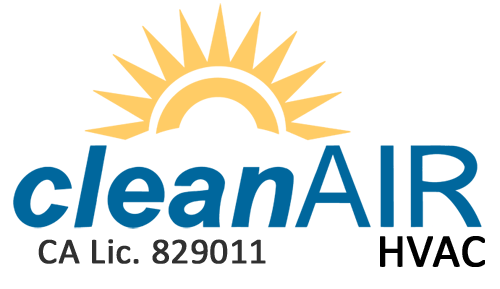
We can all benefit from saving money from time to time. One of the easiest ways to accomplish this is by identifying energy inefficiencies throughout your home. Upgrading your HVAC equipment or adding a smart thermostat, for example, offers more control over your HVAC system, resulting in a more energy-efficient home and savings on your monthly energy bills.
Continue below to learn about 4 ways you can make energy-efficient home enhancements.
1. Use Smart Home Products Like a Smart Thermostat
If you still use a round-dial thermostat and access it manually, try taking a step toward the future by installing a smart, or Wi-Fi, thermostat – which includes several features to improve your home's energy efficiency.
The function homeowners appreciate the most is having the capability to access their smart thermostats from wherever by using their smartphone or other smart device. For instance, in situations where you forget to adjust your thermostat before going on vacation, you can easily use your smartphone and make any needed adjustments.
Just like a programmable thermostat, a smart thermostat permits you to pre-set your home’s temperature according to the time of day and day of the week so you’re not heating or cooling an empty house. Smart thermostats also feature the capacity to learn your temperature preferences over time and automatically make energy-efficient modifications. They can even generate monthly energy reports that show how much energy you’re using and when so you can make adjustments to save money.
If you’re curious about how to get a free smart thermostat, check with your utility company to learn if there are any discounts or free smart thermostats available to you.
2. Regularly Scheduled Tune-Ups for Your HVAC System
Unfortunately, some homeowners often forget about having their heating and cooling systems maintained. While this might not seem important, ignoring maintenance will sometimes produce a number of issues, including inefficiency, breakdowns, and a shorter system lifespan.
When performing an HVAC maintenance service, the technician is going to inspect your HVAC system, clean important components, and catch minor problems before they lead to bigger, more expensive repair issues. Tune ups keep HVAC systems running in optimal condition, which means less energy is needed to heat and cool your home. This could also lower your energy bills, increase the lifespan of HVAC equipment, and contribute to fewer repairs.
We suggest two HVAC tune ups every year – once in the spring before summer and one during the fall before the arrival of winter weather.
3. Upgrading Your Worn-Down, Inefficient HVAC Equipment
Annoyingly, like any appliance, HVAC systems have a shelf life and eventually need to be replaced. Newer heaters and cooling systems are much more effective than models produced just over a decade ago. Thankfully, quality HVAC companies like Clean Air HVAC can perform professional services like furnace installation in Pacheco.
Well-maintained furnaces and air conditioners can last about 15-20 years. If the equipment is within that timeframe, it is often be a good idea to replace them early to avoid untimely equipment failures that can leave you cold and uncomfortable if it’s a cold winter night. If your system is approaching 15 years old and has a problem that needs an expensive repair, it’s definitely time to replace it. According to the U.S. Department of Energy, upgrading to a new HVAC system can save you between 20-40% on your monthly energy bills, so you’ll recoup some of the costs of installing a new system.
A professional HVAC technician can help you identify the most energy efficient HVAC system available. As a general rule of thumb, try to find HVAC systems that are Energy Star certified, meaning the equipment fulfills strict guidelines established by the U.S. Environmental Protection Agency. LENNOX HVAC systems are some of the most efficient systems on the market, offering both high AFUE and SEER ratings. AFUE is intended for heating systems and illustrates how well they convert fuel to heat. SEER, meanwhile, is used to calculate the efficiency of cooling equipment.
Contact a reputable HVAC provider like Clean Air HVAC for air conditioning installation in Pacheco.
4. Switch to More High Efficiency Air Filters
The next time you’re shopping for new HVAC filters, remember that not all air filters are the same. Specific air filters are far more successful than others, contributing to lower energy bills and a clean home.
The performance of HVAC air filters is rated by their Minimum Efficiency Reporting Value, or MERV rating. The MERV scale ranges between 1-20; the higher the number, the more effective the filters are. It’s relevant to note, though, that high-efficiency air filters can sometimes restrict airflow too much according to the type of HVAC system you installed. It’s important to study the owner’s manual before buying a filter to find the right one for your system.


